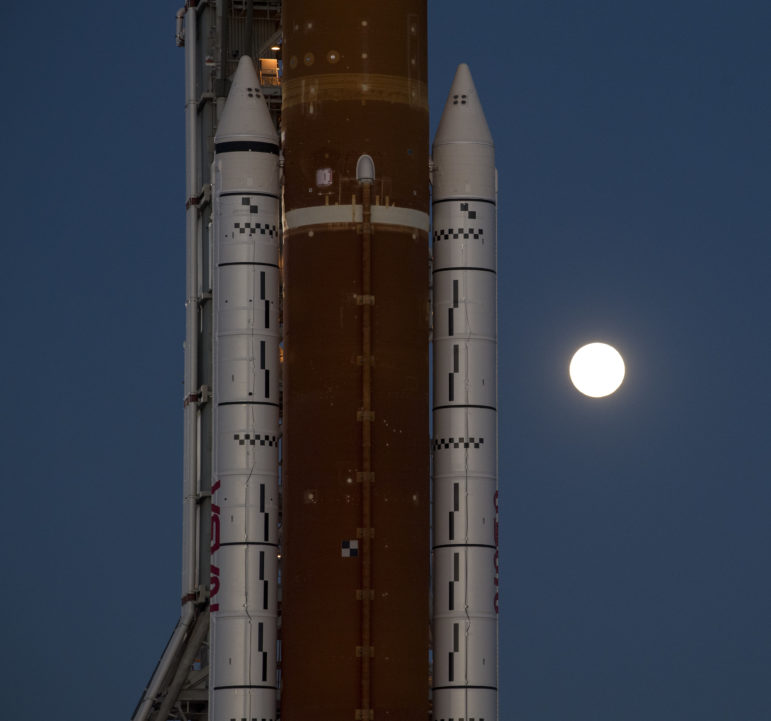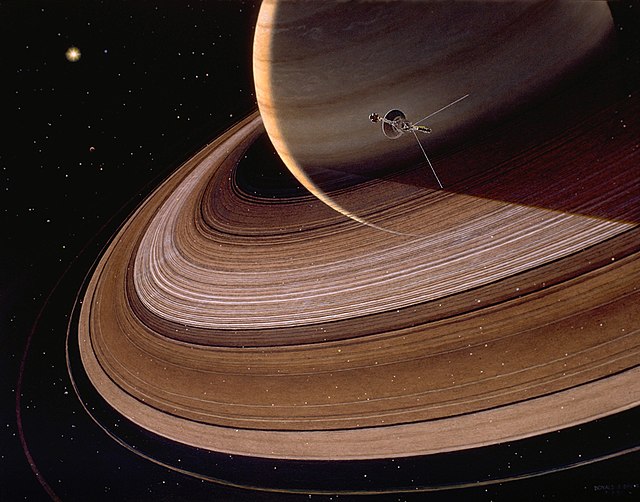
The scramble to space has become a reality for several billionaires, making space tourism the new must-have asset in one’s portfolio. NASA will also be launching the Artemis I mission to enable human exploration to the Moon and Mars. With these new explorations into space comes the inevitable existential musings on our place not just in the world but in the universe or indeed, the multiverse.
Some organizations like the Center of Theological Inquiry, frequently referred to as CTI, has been consulted to “assess societal implications for NASA’s astrobiological and search for life efforts.” Some concluded it was NASA funding the question but William Storrar, CTI’s director, said to the AP “that the purpose of the program was not to advise NASA, but to convene scholars in the humanities to discuss research in astrobiology, which is the scientific field that studies the potential of the universe to harbor life outside Earth.”
The 24 theologians in the project appear to have addressed the question of how humans might react to the knowledge that there are other intelligent life forms “out there” from non-Pagan faiths.
So, we decided to follow up with our own theologians on the question of extraterrestrial life.

Artemis 1 (Photo Credit: NASA/Aubrey Gemignani – Public Domain)
The Wild Hunt reached out to some Pagan writers and academics so that they might reveal to us a different perspective on the discussion of life beyond Planet Earth.
Dr. Viviane Crowley is a lauded author, teacher, and High Priestess of Wiccan.
Dr. Robert Patrick is an academic and spiritual leader in modern Druidry.
Dr. Holli Emore is the director of Cherry Hill Seminary. She is Kemetic, with Temple Osireion.
The Wild Hunt: Do you believe in life outside of planet Earth, if so what form do you think that life might take?
Vivianne Crowley: Given the size of the universe, it would seem likely that there are sentient life forms on other planets. Their form would depend of course on the planet’s ecosystem, but they would be likely to have a well-developed culture. It seems likely that any sentient life form would feel the need for self-expression and would have developed creative arts. It would also want to understand the world around it, so would have developed science, history, linguistics and other intellectual disciplines.
Robert Patrick: As a Unitarian Universalist and practitioner of modern Druidry, I am committed to the reality of life wherever it is found. I recognize that all things in existence have an energy. That energy may manifest as a set of life processes, as a magnetism, as an electrical current or even (as I imagine with an informed knowledge base) some form that we have not yet identified. So, as a human being on earth, I recognize that energy in trees, in animals, in other human beings, but in rocks and stars, bodies of water and the moving winds as well. That view of the cosmos necessarily includes the possibility of life beyond earth, outside our solar system and in various forms. That life would manifest as some expression of energy.
Holli Emore: It is the height of arrogance to assume that our planet holds the only life in the universe. While we may think of ourselves as unique, that is only because we’ve never seen ourselves mirrored on another heavenly body, but how many of those have we visited and explored? The other way that we show ignorance, if not also arrogance, is to assume that life is defined by our experience of it on this planet. I have no idea what other forms life would take in space, but I feel confident they would defy our five senses.
TWH: If you were to discover that there is sentient life on other planets, how might this impact your current belief systems?
VC: It would not have any impact on my current belief systems, but I would find it exciting to know that the universe has other sentient beings.
RP: Such a discovery would be exciting and demand my immediate attention, a surprise in the sense that we would have a specific occurrence, but it would not be a surprise that there was life “out there.” My understanding of life as energy means that we live in an entire cosmos of potential life. What will ultimately be surprising to me is if we never encounter anything else that demonstrates energy as life. The longer we are able to live in balance with Earth herself, the longer we have to explore and be open to other life forms. Our own attention to balance on Earth necessarily deserves our attention in that regard.
HE: My personal belief is that life is constantly expanding, recreating, generating and regenerating. It is inconceivable to me that this ever-multiplying force would hit some kind of planetary force field and simply stop. I have a strong suspicion, based on this premise, that it is impossible for us to ever find the full extent of what exists because it is constantly fractaling out in new forms.

Andromeda Galaxy [NASA/JPL-Caltech – Public Domain]
TWH: Have you had discussions with other Pagans regarding the inevitable ventures into space and what might be found there?
VC: Yes, from time to time. Some people are excited about the idea; others are wary. The problem of course is that if other sentient beings are much more advanced than us, then our fate could be the same as any group in human history that encounters a more technologically advanced people. They might want to invade, exploit and exterminate us. Even well-intentioned encounters are fraught with hazard because of the possibility of infecting each other with diseases for which we have no immunity.

Artist’s impression of the Voyager 2 space probe [Image Credit Don Davis – Public Domain]
TWH: Many Pagans base their theology around an understanding of symbiosis between all life forms and the planet earth, how does extraterrestrial life fit into this model?
HE: Again, this is just my personal belief, but I just don’t think that sentience is limited to things that move and reproduce in the ways we assume. The renascence of interest in the concept of animism should teach us that everything – everything – has its own kind of consciousness. That doesn’t mean the rock mentally processes information in the way that a human does. But I think most contemporary Pagans have come to an understanding of the earth as alive. Our respect for that position may be the primary essential belief that we can offer a society which seems bent on self-destruction.
RP: The influence of Christian thinkers through the centuries has promoted the idea among its adherents at times that the Earth is unique in “the creation” and that human beings are the superior life form on the Earth. I think that pagans in general have a more expansive view. Not only are human beings not necessarily superior (e.g. trees seem to do a much better job of sharing life-giving resources than humans do at times; among other animals, same-sex attracted members of the species are not castigated and abused by other members of the species the way many human communities do), but the Earth is very likely not unique. Life can easily be imagined taking shape on other planets in other systems throughout the cosmos. I think we tend to see that as the work of the divine however the divine is conceived.
The Wild Hunt is not responsible for links to external content.
To join a conversation on this post:
Visit our The Wild Hunt subreddit! Point your favorite browser to https://www.reddit.com/r/The_Wild_Hunt_News/, then click “JOIN”. Make sure to click the bell, too, to be notified of new articles posted to our subreddit.
